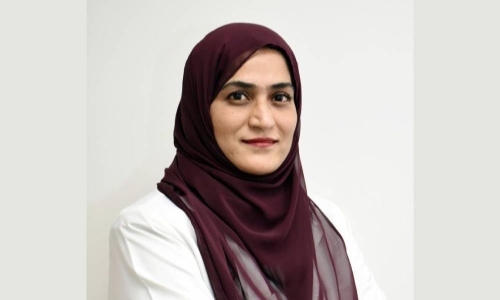Bahrain health expert warns of increased driving accidents during fasting hours
TDT | Manama
The Daily Tribune – www.newsofbahrain.com
Report by Zahra Ayaz
A leading health expert in Bahrain has highlighted the heightened risk of road accidents during fasting hours in the holy month of Ramadan.
In a recent interview with The Daily Tribune, Dr. Hajira Begum, an Internal Medicine Specialist at KIMSHEALTH, emphasised the importance of exercising caution while driving, particularly during the early morning hours and within two hours before sunset or late afternoon throughout Ramadan.
During Ramadan, individuals who observe fasting experience changes in their sleep patterns and restrict their meals to specific hours, which can have an impact on their overall well-being and cognitive functions.
Dr. Begum highlighted the increased risk of complications such as dehydration, hypoglycemia (low blood sugar), hyperglycemia (high blood sugar), ketoacidosis, and thromboembolic complications among individuals with diabetes who fast during Ramadan. “These complications, combined with disrupted sleep patterns, can contribute to an elevated risk of road traffic accidents.”
One significant factor contributing to the risk is hypoglycemia, which can lead to a decline in neurocognitive function, impaired judgement, and difficulty handling complex tasks. Dr. Begum advised individuals to avoid unnecessary long journeys without taking breaks, driving under adverse weather conditions, or engaging in complex activities during fasting hours.
Blood glucose check
To ensure a safe Ramadan, Dr. Begum recommended several key steps. First, she advised individuals with diabetes to regularly check their blood glucose levels every two hours while driving, with particular attention paid to the first two hours of the journey.
“If the blood glucose level falls below 4.0–5.0 mmol/L, it is crucial to take a snack and wait for approximately 45 minutes before resuming driving once the blood glucose levels return to normal.” Dr. Begum also stressed the importance of pre-Ramadan structured diabetic education, which should include information on risk assessment, regular blood glucose monitoring, exercise, nutrition, and medication adjustment.
“This education should address when to break the fast and how to recognise symptoms of hypoglycemia or hyperglycemia. Additionally, individuals with diabetes should be aware of sick day rules and avoid fasting during any undercurrent illness. Carrying a medical ID at all times is also recommended,” she added.
Strenuous physical activity
When asked about immediate steps to be taken if an individual fasting suddenly feels weak, Dr. Begum advised discontinuing any strenuous physical activity, including driving, and breaking the fast. It is crucial to have a source of carbohydrates or food readily available in cases of low blood sugar.
Dr. Begum recommended following the “15-15 treatment rule” for diabetes, wherein 15 grammes of carbohydrates (such as glucose tablets, 4 ounces of juice or regular soda, a tablespoon of sugar or honey, corn syrup, hard candies, jellybeans, or gumdrops) are consumed to raise blood glucose levels.
Lastly, she said: “Blood sugar should be checked after 15 minutes, and the steps should be repeated until blood sugar levels exceed 70 mg/dl. Subsequently, a meal or snack should be consumed.” Taking these precautions and being mindful of one’s health can help ensure a safe and blessed Ramadan for all individuals, especially those who are fasting. Stay safe on the roads and have a peaceful month of Ramadan.
Related Posts

